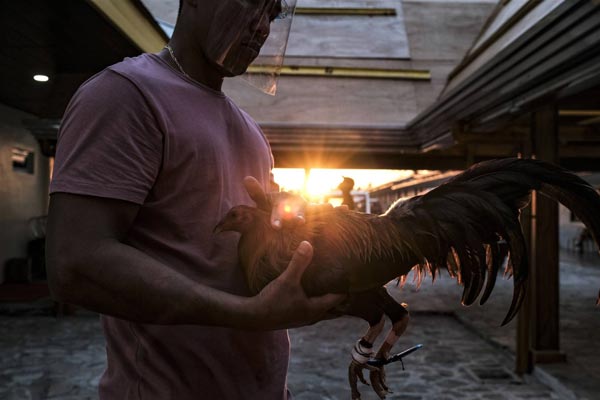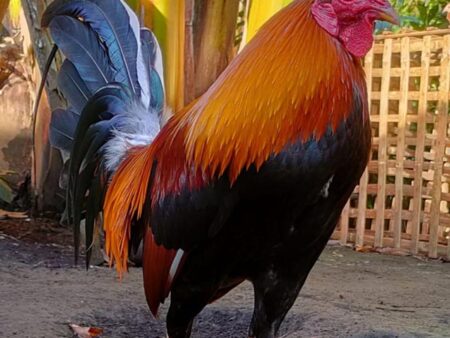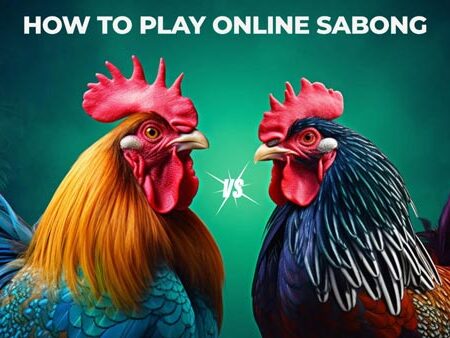Explore the ethical debate surrounding Sabong, weighing the cultural tradition against animal rights concerns and its impact on modern society.
The Ethical Debate Surrounding Sabong: Tradition vs. Animal Rights
Sabong, or cockfighting, is a long-standing tradition in the Philippines that has been practiced for centuries. This sport is deeply embedded in Filipino culture, symbolizing competition, skill, and community spirit. However, in recent years, Sabong has come under scrutiny due to growing concerns about animal rights and welfare. Online casino philippines delves into the ethical debate surrounding Sabong, exploring both sides of the argument and the implications for modern society.

The Cultural Significance of Sabong
Sabong is more than just a sport; it is a cultural phenomenon that brings people together, particularly during local fiestas and social gatherings. It is a tradition that has been passed down through generations, reflecting the rich heritage of the Philippines. Sabong enthusiasts argue that the sport is a vital part of Filipino identity and helps preserve cultural practices.
Supporters of Sabong believe that the sport fosters a sense of community and camaraderie. Events are often social occasions where people from different walks of life come together to celebrate and enjoy the spectacle. Moreover, Sabong is seen as an expression of artistry and skill in breeding and training gamecocks.
The Animal Rights Perspective
On the other side of the debate, animal rights advocates argue that Sabong is inherently cruel and inhumane. The sport involves pitting two roosters against each other in a fight to the death, which raises significant ethical concerns about the treatment of animals. Critics argue that no cultural tradition should justify animal suffering and that Sabong should be banned to protect animal welfare.
Animal rights activists highlight the physical harm inflicted on the gamecocks, including injuries from sharp blades attached to their legs. They also emphasize the psychological stress and suffering the birds endure. From this perspective, the practice of Sabong is viewed as a form of animal cruelty that should be eradicated in favor of more humane alternatives.
Legal Status and Regulations
Sabong is legally recognized and regulated in the Philippines. The Philippine Cockfighting Commission oversees the sport to ensure fair play and humane treatment of the animals. However, illegal cockfighting, known as “tupada,” is rampant and often escapes regulatory oversight. This illegal practice exacerbates concerns about animal welfare and raises questions about the effectiveness of current regulations.
Despite its legal status, the ethical debate continues, with some calling for stricter regulations or an outright ban on the sport. Proponents of animal rights argue that existing laws are insufficient to protect the welfare of the gamecocks and that more robust measures are needed.
The Economic Aspect
Another dimension of the debate is the economic impact of Sabong. The sport supports a significant industry that includes breeders, trainers, event organizers, and betting operators. For many, Sabong is a source of livelihood and economic opportunity. Banning the sport could have far-reaching economic consequences, particularly for those who rely on it for their income.
Supporters argue that responsible regulation can ensure both the continuation of the tradition and the welfare of the animals. They advocate for measures such as improved care standards, veterinary oversight, and penalties for abusive practices.
Balancing Tradition and Ethics
The ethical debate surrounding Sabong presents a complex challenge of balancing cultural traditions with modern ethical standards. While the sport is a cherished tradition for many Filipinos, there is a growing recognition of the need to address animal welfare concerns. Finding a middle ground that respects cultural heritage while promoting humane treatment of animals is essential.
Recommendations for Sabong Providers
For those interested in experiencing Sabong while ensuring ethical practices, consider the following reputable platforms:
- ssbet77: ssbet77 offers a comprehensive range of Sabong matches with user-friendly betting options and high-quality streaming. The platform ensures a seamless and engaging experience for enthusiasts.
- bc game: Known for its extensive coverage of Sabong events and competitive odds, bc game provides a reliable and enjoyable betting experience. The platform’s secure transactions and live streaming features make it a top choice for serious bettors.
- PeryaGame: This platform offers various Sabong matches and competitive odds, attracting both seasoned and new bettors. PeryaGame ensures a seamless and engaging betting experience with reliable service.
The ethical debate surrounding Sabong is a reflection of broader societal shifts in values and attitudes towards animal rights and cultural traditions. While the sport remains a deeply ingrained part of Filipino culture, there is an increasing awareness of the need to address animal welfare concerns. Balancing the preservation of cultural heritage with ethical considerations is a challenging but necessary endeavor. By promoting responsible practices and engaging in open dialogue, it is possible to find a way forward that honors tradition while ensuring the humane treatment of animals. Whether you’re a supporter of Sabong or an advocate for animal rights, understanding both sides of the debate is crucial to making informed and compassionate decisions.
- Find out more: Strategies for Raising Champion Gamecocks

